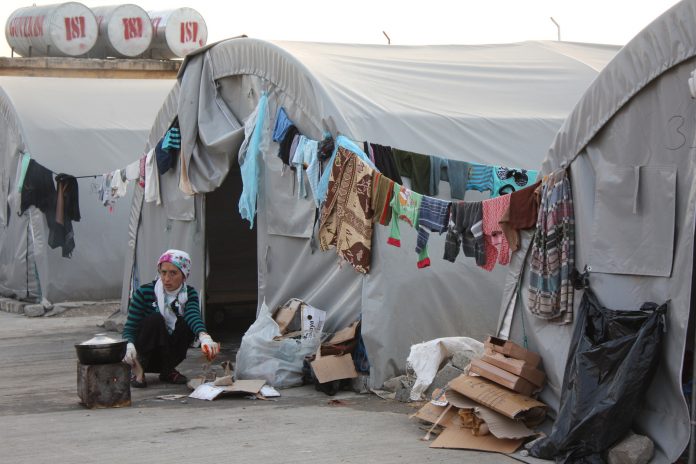Signed exactly two years ago, the European Union’s heavily disputed refugee agreement with Turkey remains shrouded in controversy.
The aim of the agreement was to solve one of Europe’s most pressing problems: the enormous influx of refugees fleeing the war in Syria. But while Syrian refugees were looking for safe countries where they and their families could live, EU-Turkey relations were placed under a huge strain, reported Deutsche Welle (DW), Germany’s international broadcaster.
According to the United Nations, Turkey has been hosting 2,900,000 refugees. Turkey, however, says that their number recently rose to around 3,500,000. And Ankara has repeatedly threatened to terminate the agreement because the EU has not paid the stipulated amount. Another problem raised by Ankara is that the EU has yet to implement visa-free travel to the bloc for Turkish citizens – as stipulated under the agreement.
As reported by DW, the question for the EU has been how to get the money together, while for Turkey the more important issue has been when the money would arrive.
Under the agreement, Turkey was promised €6bn in financial aid, to be used by the Turkish government to finance projects for Syrian refugees. According to the EU Commission, €3bn has already flowed into Turkey to cover the costs of educating half a million Syrian children.
Last week, the EU Commission decided that the second instalment of €3bn, promised under the refugee agreement, would be made available. The Turkish government, on the other hand, declared that it had so far received €1.85bn from the EU. Financial assistance from the EU fund reaches Turkey through projects. The aid is not delivered to the government’s coffers, reported DW.
In a separate report, the Financial Times noted that billions of euros of EU spending on Turkey has largely failed to cut corruption, strengthen the judiciary and create greater political freedom, according to an official report that lays bare tension between Brussels and Ankara.
“Turkish institutions are and have always been willing to work with the EU on rule of law and fundamental rights in order to continue the reform process,” the official told the Financial Times. “It is a big contradiction from the EU to criticise Turkey on these fields and at the same time cut funds which are supposed to bring Turkey closer to the EU.”
A report by the Luxembourg-based European Court of Auditors says more than €9bn of EU pre-accession funding allocated to Turkey between 2007 and 2020 was “well designed” but has had only a “limited effect” in the absence of “critical reforms” in Turkey.
In other areas where there has been more progress, notably customs, employment and taxation, results may be in jeopardy because of “difficulties in spending the funds and backsliding on reforms”, the EU auditors add.
The auditors argue that EU officials missed the opportunity to use the money — and the threat of cutting it off – to put pressure on Turkey to stay on the right track, reported the Financial Times.

